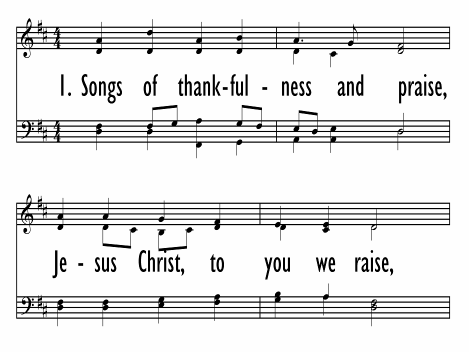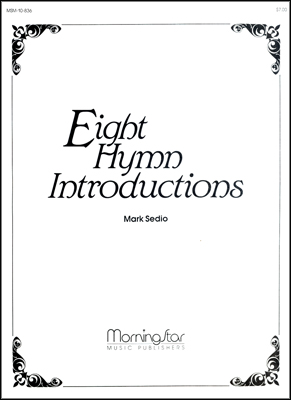- |
User Links
Robed in Majesty
Hymn Information
- First Line
- Robed in majesty, he reigns
- Author
- Martin Leckebusch
- Tune Name
- SALZBURG
- Composer
- Jakob Hintze, 1622-1702
- Harmonizer
- Johann S. Bach, 1685-1750 (adapt.)
- Topic
- God as: King · God's: Might · Elements of Worship: Praise and Adoration
Copyright Information
- Text Copyright
- © 2003 Kevin Mayhew Ltd.
- Tune Copyright
- Public Domain
- Reprint/Projection Information
- Words: Permitted with a license from CCLI.com or from OneLicense.net. If you do not own one of these licenses, please contact the copyright holder for permission.
- Music: The Music is in the Public Domain; you do not need permission to project or reprint the Music.
Scripture References
Further Reflections on Scripture References
Psalm 93 may be the primary reference, as is Psalm 47, but the confession of hope for the kingdom of God on earth is found throughout the section of Psalms 94-100.
In the New Testament, note the similar thought in Philippians 2:9-11, Revelation 4 and 5, and also Revelation 19:1-21.
Confessions and Statements of Faith References
Further Reflections on Confessions and Statements of Faith References
What we know as the attributes of God reveal his character and being. For these, he is worthy of praise and adoration. Even before he says or does anything, he is praise-worthy. The opening words of Belgic Confession, Article 1 declare that God is “eternal, incomprehensible, invisible, unchangeable, infinite, almighty; completely wise, just, and good, and the overflowing source of all good.”
The Lord’s Prayer ends with a doxology, and Heidelberg Catechism, Lord’s Day 52, Question and Answer 128 extrapolates: “Your holy name…should receive all the praise, forever.” After expressing our trust in the total care of God for all things, Heidelberg Catechism, Lord’s Day 9, Question and Answer 26 declares, “God is able to do this because he is Almighty God and desires to do this because he is a faithful Father.” And so we express our praise and adoration to God for who he is.


 My Starred Hymns
My Starred Hymns







